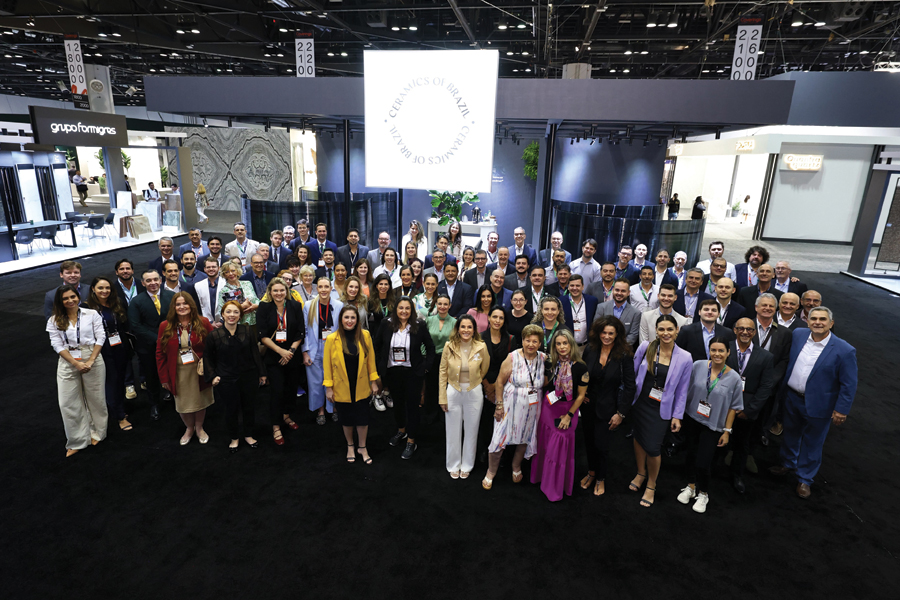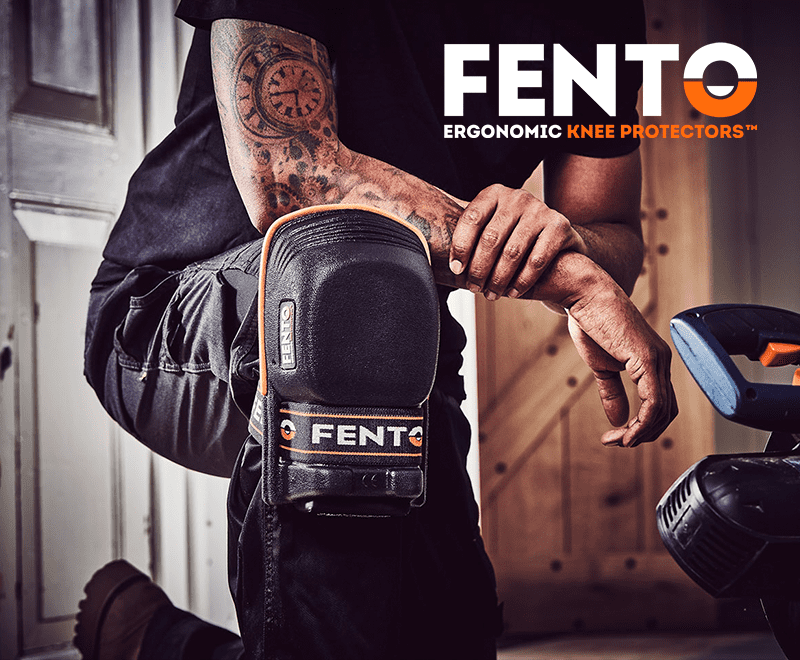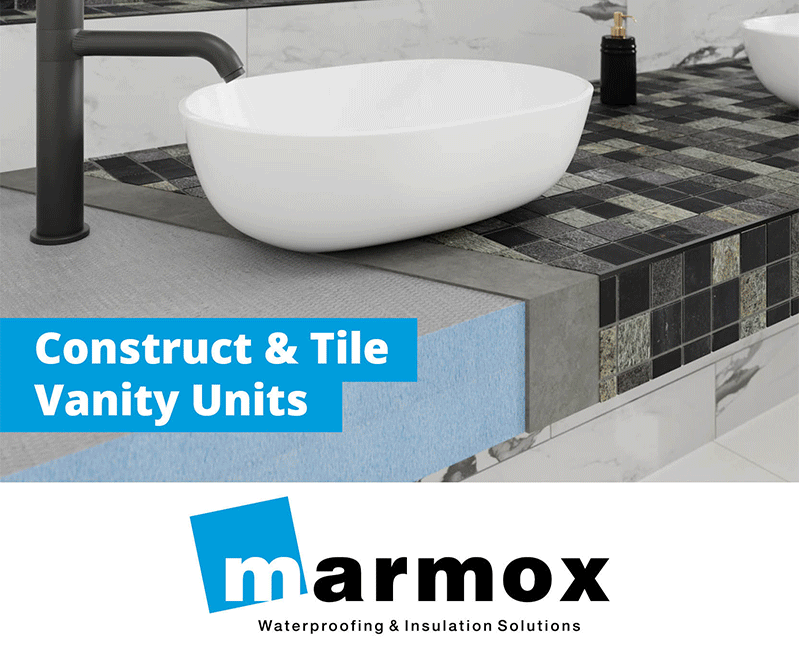This month, TSJ is focusing on Brazil, one of the world’s largest tile manufacturers and exporters. Like many other tile-producing nations, Brazil is increasingly focused on
sustainability and rigorous manufacturing standards. Recently, we got in touch with Anfacer, the Brazilian ceramic industry association, to learn more.
According to the organisation, Brazil is one of the “main players” in ceramics and sanitary ware, reportedly ranking as the industry’s third largest consumer market and the sixth largest exporter, with sales to more than 110 countries. Anfacer says this productive segment represents 6% of the GDP of the construction materials industry, and is the second largest industrial consumer of Brazilian natural gas.
Founded in 1984, Anfacer represents the Brazilian ceramics industry on the international stage. It provides a number of services to the sector, including institutional representation in Brazil and abroad, marketing and branding for the industry, and trade promotion. Additionally, it develops programmes to promote quality, competitiveness and standardisation in the market, while also working towards tax relief for its member companies.
In its own words, Anfacer’s mission is to: “Practise the institutional capacity of representativeness of the Brazilian ceramic tile industry, aiming to promote competitiveness and expand markets for the sector.”
The country’s tile industry comprises 80 4 manufacturing units, primarily located in the southeast and southern regions, but also expanding into the northeast of the country. In addition to 50,000 direct jobs, the sector supports the employment of some 200,000 more indirectly. According to Anfacer, a typical characteristic of Brazilian manufacturers is the use of two distinct processes: dry process and wet process. The organisation continues, saying: “Brazilian manufacturers of ceramic tiles are aligned with the best technology available in the world and in compliance with international quality standards.”
An optimistic outlook
Providing his own evaluation of the industry in 2023, Sérgio Magalhães, chairman of the board of directors for Anfacer, said: “A dynamic, innovative and competitive industry with a successful path, the ceramic tile and sanitary ware industry establishes itself as a major international player of the sector. We are the third biggest producer and consumer of ceramic in the world. Our authentic design and quality of products are world renowned. We are present in over 110 countries, on the sixth position of the exports ranking, selling to all of the continents.
“Throughout this journey, innovation and sustainability have become essential to the strengthening of the industry. Constant investment in technology and the pursuit for the decarbonisation of the sector are the main factors of the development. We see innovation as a fundamental strategy of economic and social development of the world.
“Companies that are innovating become more competitive, creating jobs and generating income, even during the most rough and challenging times. In this scenario, our fundamental mission as representatives of the sector, Anfacer has developed a strategic planning with goals until 2030, as to contribute to the strengthening and expansion of the sustainable growth of the ceramic industry.”
International outings
Like ASCER in Spain and Confindustria Ceramica in Italy, one of Anfacer’s primary functions is to promote the profile and usage of Brazilian tiles around the world. One of the ways it achieves this objective is by attending events such as Coverings and Cersaie, as well as organising and hosting its own domestic trade fair, Revestir.
For example, in association with Anfacer, Brazilian manufacturers Portobello and Eliane both exhibited at this year’s Cersaie, “taking advantage of this showcase to exhibit [their] main launches for 2023”. Additionally, Roca devoted a segment of its stand to products made by its Brazilian arm, including a range of “superformat” tiles, ranging from 120x120cm to 160x320cm.
More recently, the association has also confirmed the participation of 16 member companies at the next edition of Coverings at the Georgia World Congress Center in Atlanta, USA. These companies, including Carmelo Fior, Formigres, and Grupo Almeida, will use the show as a platform to reach Brazil’s most important export market. During the first half of 2023, almost half of all Brazilian tile exports went to North and Central America, amounting to more than $87m (£71.7m) in revenue.
Domestically, the organisation is also busy planning the next edition of Expo Revestir, a Brazilian trade show for ceramic tiles, sanitaryware and metal furnishings. The upcoming edition will take place from March 19 to 22, 2024, in hybrid form, with a face-to-face event held at São Paulo Expo between 10am and 7pm and a corresponding digital platform going live throughout.
Last year, the show welcomed a record attendance of more than 88,000 visitors from 52 countries, comprising architects, interior designers, retailers, builders and international buyers. Over 300 brands exhibited over 62,000sqm of floor space (double the size of the show’s previous edition) showcasing trends and launches at what organisers say is the first big business and networking event of the year for the sector.
A multi-pronged sustainable strategy
In line with its contemporaries in other countries, Anfacer has also put significant investment and effort into promoting the sustainable qualities of its members’ products. The PQ CERÂMICA initiative primarily focuses on marketing the inherently sustainable aspects of ceramics, such as their low VOC content, lack of PVC and formaldehyde, as well as their long service life. Reflecting the broader evolution of the idea of sustainability to encompass more than just environmental responsibility, the initiative places emphasis on the hygienic, inert qualities of tiles as well as their ease of maintenance.
The campaign also highlights some of the less-talked-about advantages of tiles, such as their modularity, with a wide variety of sizes and formats enabling projects to plan according to precise measurements and thereby reduce waste. The industry’s contribution to energy efficiency, reuse of pre-and post-consumer waste material and commitment to responsible manufacturing are all prominently championed by PQ CERÂMICA too.
Separately, the organisation has introduced another initiative called + Sustainable, which aims to “transform” the Brazilian tile sector through “the incorporation of the sustainable development criteria [in] the business strategy of companies”. Rather than focusing purely on the sustainability benefits of the end product, this campaign is more interested in processes and strategies, attempting to contribute towards a circular economy.
www.anfacer.org.br









